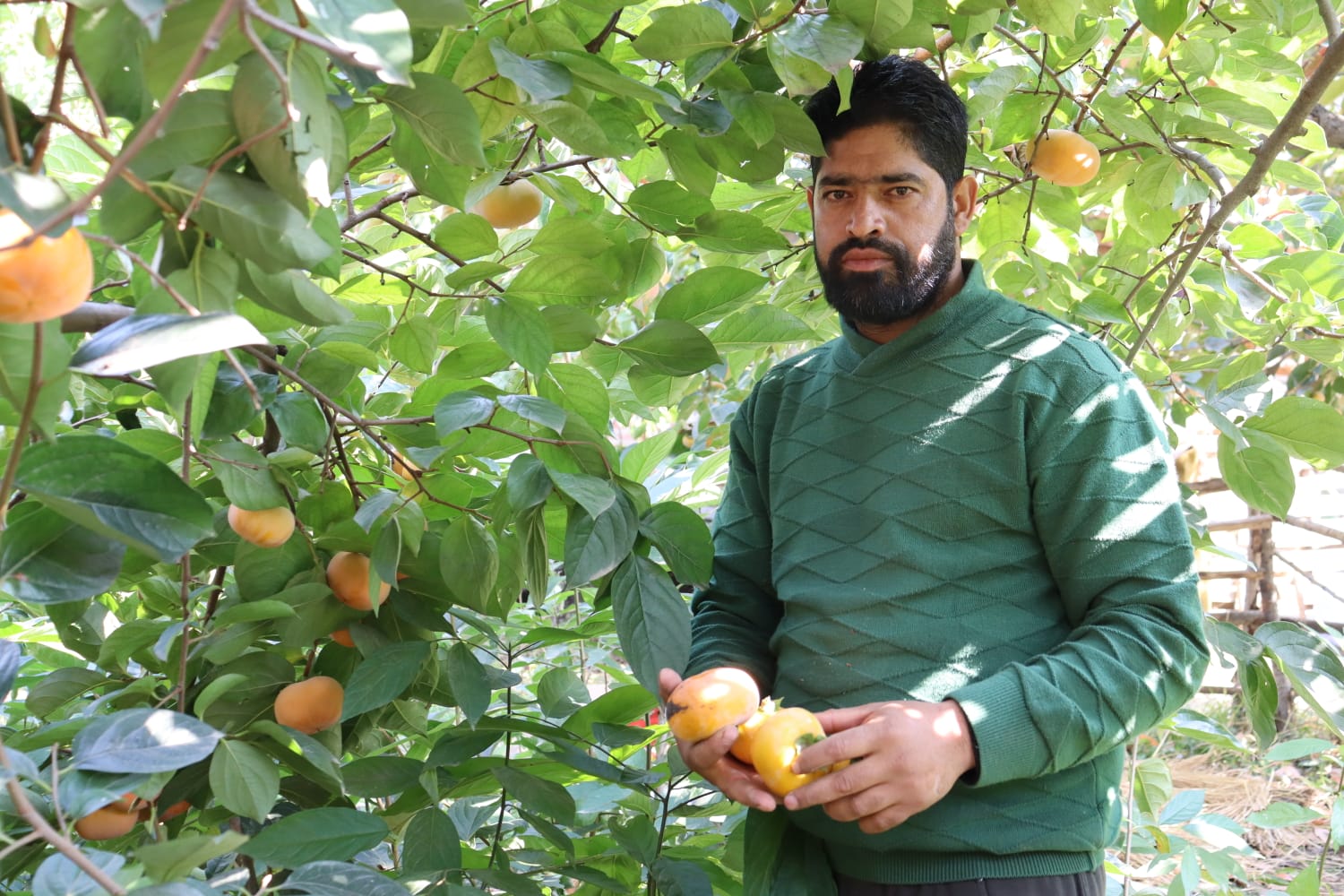by Syed Shadab Ali Gillani
SRINAGAR: Seven years ago, the Itoo family embarked on a transformative journey that would reshape the landscape of Kashmir’s valleys. Ghulam Ahmad Itoo, during his visits to Himachal Pradesh, stumbled upon a modest persimmon orchard that captured his curiosity. This encounter marked the beginning of a journey that would significantly alter the course of his life.

Intrigued by the tomato-like fruit, Itoo delved into understanding its nuances by seeking out knowledgeable cultivators. His son, Shabbir Ahmad Itoo, a contractual lecturer, shared his father’s enthusiasm and proposed bringing persimmon seeds and seedlings to Sonigam village in South Kashmir, four kilometres from Kulgam town.
Upon their return, the father-son duo wasted no time putting their newfound knowledge to the test. Little did they know that this experiment would yield remarkable results, bringing about a positive change in their lives and sparking a new trend in the community.
Nearly four years later, the persimmon trees bore fruit, culminating in a bumper crop this year. Shabbir expressed delight, saying, “It turned out to be a great experience for us as our experiment worked.”
Persimmons, native to China, northeast India, and northern Indochina offer a myriad of health benefits, serving as a rich source of essential nutrients such as dietary fibres, potassium, manganese, and vitamins A, C, and B.
Shabbir highlighted the efficiency of persimmon cultivation, noting that, unlike apple trees, persimmon trees do not demand regular applications of pesticides, insecticides, and artificial fertilisers. Moreover, the yield from persimmon trees surpasses that of apple trees, with the trees reaching heights of over 12 feet.
Discussing the business potential, Shabbir emphasised the profitability of persimmon farming when done correctly. “For one box weighing around six kilograms, one can fetch around Rs 700–1000, and in Delhi, one kilogram is sold for Rs 120–200, which is a good amount,” he said.
Persimmon cultivation, according to Shabbir, offers a higher product yield with fewer input expenditures. Encouraging fellow farmers to explore beyond traditional apple farming. “Persimmon farming is a new concept in Kashmir, but the climate is suitable for its farming, so farmers should experiment with new crops and adopt new techniques to grow their business,” he suggested.
Acknowledging initial challenges, Shabbir credited his father’s support and expressed a willingness to assist others interested in persimmon cultivation. He suggested seeking guidance from institutions like the Sher-e-Kashmir University of Agriculture Sciences (SKUAST) and the Department of Agriculture and Horticulture.
In his efforts to promote persimmon cultivation, Shabbir expanded his persimmon nursery and distributed hundreds of free plants to neighbours and fellow farmers. “I advise them to start cultivating on small land and see results, and later you can expand it,” he said.
Off late, Kashmir farmers are experimenting with growing fruits and vegetables that otherwise are not endemic to Kashmir. In Sopore, one farmer successfully managed to create an impressive Kiwi Fruit orchard and this encouraged others to follow suit. Over the years, many people have been experimenting with growing oranges and it has not been a failure. People in Srinagar are growing oranges in their courtyards.















